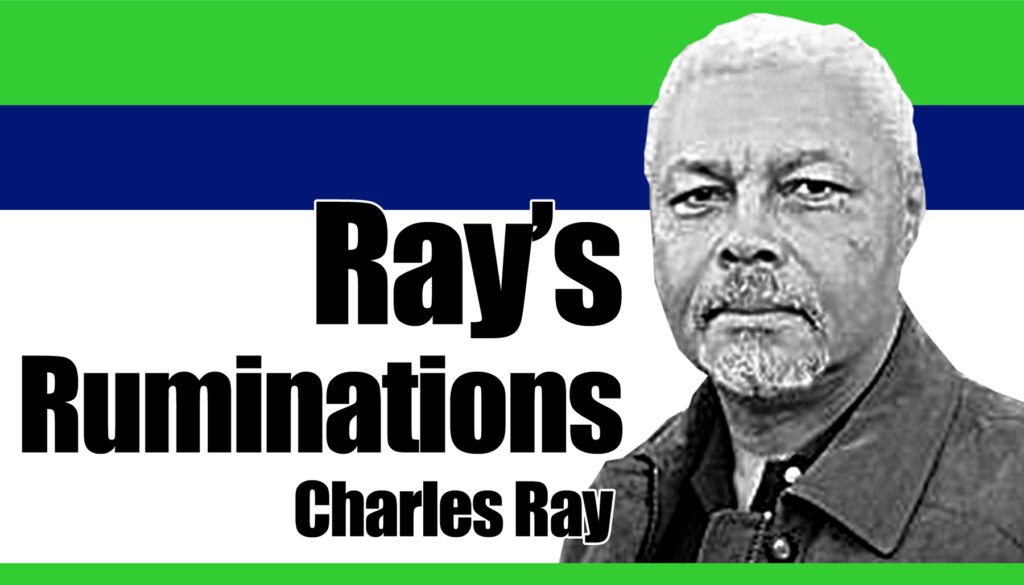
In Revenge of the Tipping Point, author Malcolm Gladwell wrote about the presence of women in business and how when a woman is the only woman present in the room, she’s often invisible to others. When not invisible, she’s treated as a surrogate for ALL women. His thesis is that there is a ‘tipping point’, or percentage of women needed to be present before a woman can just be herself and feel comfortable.
This is true for everyone who is part of a previously disadvantaged group. I know whereof I speak, having often been the only person of my demographic in the room, in my case in the military and as a diplomat, and I can tell you it is a lonely and frustrating condition. You’re either ignored, or you’re treated as an oddity like a talking dog.
In such cases, even when people try to accord good treatment, it grates on you because it’s given as if somehow you’re a freakish exception to the rule and not REALLY part of the demographic. It’s kind of like the old saying that what the talking dog says is not what’s so fantastic, but the fact that dog talks at all.
While I grew up in a rural East Texas community where academic achievement was not prized—or rewarded—my mother taught me to read when I was four and I’ve been an obsessive reader since. By the time I was twelve I’d read every volume of both the Encyclopedia Americana and the Encyclopedia Britannica.
I’d taught myself to play chess with a checkerboard and chess pieces I’d fashioned out of clay and painted with shoe polish, I’d learned basic Spanish and some German, and I was probably the only teenager of any ethnic group in my home town who had read any of Shakespear’s works by the time I left high school.
Opportunities for me, though, were limited in 1961 in Jim Crow Texas, so after high school, and as soon as I turned 17, I joined the army.
Thanks to my love of reading, I aced every one of the entrance tests they gave new recruits, and after basic training, instead of being sent to infantry training like most of my fellow recruits, I was sent to communications school to learn Morse Code operations.
After 12 weeks of radio operator training I was able to send Morse Code at 18 words per minute, one of only ten people in my class of sixty to achieve that top speed. The instructors treated me like I was some kind of freak show, showing me off to other recruits like a circus act. At the time, while it was uncomfortable, I didn’t really understand it, since it was the first time I’d been the only person of my ethnicity in a situation. It happened again when I arrived in Germany.
I enrolled in German language training in my unit in Augsburg, and was again the only one of my kind. When I achieved a level of basic proficiency in the language in two weeks, I was again put through the circus act, shown off like the two-headed calf at the county fair.
This went on again and again during a twenty-year army career, and about halfway through that career, around 1972 when, as a captain I’d moved from field artillery to military intelligence and had been strongarmed into being one of a very few of my ethnicity to attend a high-level, nine-month intelligence training course, did I realize that I’d been either invisible or a ‘model’ for those ten years; shunted into unusual, but not really career-enhancing jobs because I was considered an ‘exception.’
I retired from the army in 1982 and became a diplomat, and yet again found myself being the only one of me in situations, only now, it was not just the only one of my ethnicity, but the only career military person, and again, I was either invisible and ignored, or extolled and embarrassed for my ability to do things that many believed people like me incapable of doing.
For example, when I was assigned to Chinese language study before being sent to China (an assignment that I had to fight for because it was felt that people like me wouldn’t be accepted by the Chinese—one of my army tours in Korea was in that category, and only my realization that making noise was the only way to make myself visible did I get it as well).
I made noise and finally, in my case, I was also allowed to study reading and writing along with speaking and listening—the only one in my class with that privilege. When, after six months, I had managed to achieve almost three-level proficiency, the level considered professional proficiency, I became the darling of the language department.
I could go on, but I think I’ve made my point. One is a lonely number in situations such as the ones I’ve described. And when people in organizations fail to realize this, everyone loses. Sometimes, the only cure, is when you’re that one, you have to provide your own company, and make enough noise so that you’re no longer invisible. | NWI




